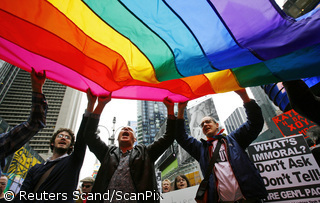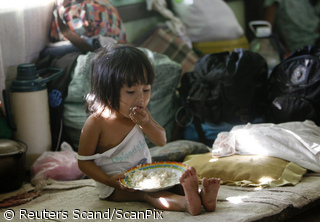Immigration and tourism from Russia boost economy and population of Eastern Finland
Published:
22 March 2005 y., Tuesday
The proximity of the Russian border is having an increasing impact on life in the eastern and southeastern parts of Finland. It is visible and audible in many ways in the everyday life of border communities, and is gradually also being felt in statistics.
Although the number of Russian residents is still small, about two percent at the most, the trend can already be felt in municipal net migration figures.
Perttu Vartiainen, the Rector of the University of Joensuu, and Professor of Social Geography, has done research on migration trends. He predicts that in areas which have been losing net population, the relative impact of the Russians will be strong in the coming years.
"When net emigration and mortality are high, immigration is the only positive counterforce. The proportion of Finns will decline, and that of people linked with the Russian language or culture in one way or another will increase."
Two thirds of immigrants living in Finland are from Russia or the former Soviet Union, and 90% of all immigrants living in Eastern Finland are Russians.
About 4,000 Russian citizens live in South and North Karelia, in addition to many others who speak Russian as their mother tongue.
However, the "Russians" are by no means a uniform group of people. Many of those who speak Russian are not Russian citizens.
"If we speak of those moving to Finland from the area of the former Soviet Union, the group will include Estonians citizens, some of whom are Russians and Ingrian Finns", Vartiainen points out.
Šaltinis:
helsinginsanomat.fi
Copying, publishing, announcing any information from the News.lt portal without written permission of News.lt editorial office is prohibited.
The most popular articles
 Tiwonge Chimbalanga and Steven Monjeza are married, but in Malawi homosexuality is banned.
more »
Tiwonge Chimbalanga and Steven Monjeza are married, but in Malawi homosexuality is banned.
more »
 The World Bank today launched the fourth book in the critically acclaimed Moving Out of Poverty series, which provides bottom up perspectives on poverty and local realities by over 60,000 people living in 500 communities in 15 countries.
more »
The World Bank today launched the fourth book in the critically acclaimed Moving Out of Poverty series, which provides bottom up perspectives on poverty and local realities by over 60,000 people living in 500 communities in 15 countries.
more »
 Ten years ago, European leaders pledged to end poverty in the EU by 2010. As this deadline approaches, the goal is still some way off.
more »
Ten years ago, European leaders pledged to end poverty in the EU by 2010. As this deadline approaches, the goal is still some way off.
more »
 For many 2009 will be a historic year with the coming into force of the Lisbon Treaty, the outcome of the Copenhagen summit and the inauguration of the first black US president.
more »
For many 2009 will be a historic year with the coming into force of the Lisbon Treaty, the outcome of the Copenhagen summit and the inauguration of the first black US president.
more »
 Not answering the phone, celebrating Hogmanay and reading Dickens' Christmas Carol are just three seasonal traditions that MEPs shared with us.
more »
Not answering the phone, celebrating Hogmanay and reading Dickens' Christmas Carol are just three seasonal traditions that MEPs shared with us.
more »
 More and more people make their homes and own property in EU countries other than the one in which they hold citizenship.
more »
More and more people make their homes and own property in EU countries other than the one in which they hold citizenship.
more »
 European Parliament President Jerzy Buzek has made an televised Christmas and New Year address to European citizens, looking ahead to the challenges of the coming year.
more »
European Parliament President Jerzy Buzek has made an televised Christmas and New Year address to European citizens, looking ahead to the challenges of the coming year.
more »
 Lithuania takes the 1st position in the EU by the number of students in the country.
more »
Lithuania takes the 1st position in the EU by the number of students in the country.
more »
 Sergei Kovalev, former political prisoner turned activist for Russian human rights group Memorial gave an emotional and heartfelt address to the European Parliament on Wednesday 16 December.
more »
Sergei Kovalev, former political prisoner turned activist for Russian human rights group Memorial gave an emotional and heartfelt address to the European Parliament on Wednesday 16 December.
more »
 Strengthened passenger rights for travel by bus are an important item on the agenda when the Transport, Telecommunications and Energy Council (TTE) meets on 17–18 December.
more »
Strengthened passenger rights for travel by bus are an important item on the agenda when the Transport, Telecommunications and Energy Council (TTE) meets on 17–18 December.
more »